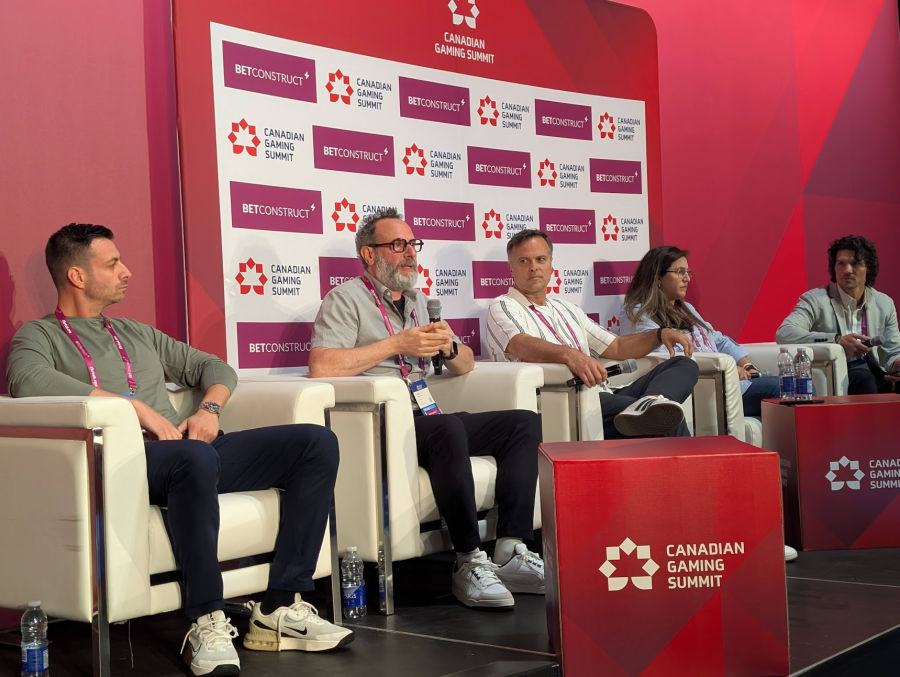Canadian Gaming Summit: Operators seek retention strategies beyond promotions

In an increasingly saturated online betting market, operators are shifting focus from promotional acquisition to long-term engagement. The panel “Marketing innovation: building customer loyalty through brand” at the recent Canadian Gaming Summit brought together marketing leaders from FanDuel, PointsBet, Optimove, and agency Pound & Grain to discuss the challenge of building customer loyalty in an industry where users are often encouraged to switch platforms.
“The average Canadian better is registered on three to four sites,” said Sandy Fleischer, partner at Pound & Grain. “In a market like Ontario, where there’s been hyper growth between 2022 and 2024, I think it was an average of six new sites launching per month making it the most competitive region.”
Jeff Laniado, Director of Sales at Optimove, highlighted how easily bettors can switch platforms due to the incentive structure. “In online gaming, there’s such little friction, and there are actually negative switching costs,” he said. “If I’m playing on DraftKings and I want to go to a new app, I’m being incentivized to do so. There’s a bonus waiting for me. It’s one of the few industries where customers are almost rewarded for not being loyal.”
Against that backdrop, panelists agreed that emotional connection—and not simply promotional incentives—was becoming central to customer retention strategies.
“The product we offer is a highly emotionally charged experience,” said Dave Rivers, Head of Marketing at PointsBet Canada. “Winning and losing on our app is the same experience. When we started to look at PointsBet and how we were going to approach the Canadian marketplace, we anchored it in the idea of the ultimate competitor—your belief that you were right, and the conviction you have.”
Alannah Della Vedova, Director of Content, Activations and Brand at FanDuel, emphasized that the consumer experience must be consistent across product and content to build trust. “And that’s done through trust security, responsible gaming products, stability, and if you can consistently deliver that you are meeting their expectations and making those emotional connections. If you look at the Netflix, Disney+, and whatnot of the world, people have more than one streaming app, but they do go back to a regular app that they know meets their expectations.”
Localization was another consistent theme. Rivers noted that even small details matter in demonstrating market relevance. “I always tell my competitors who aren’t local who aren’t in the market reference the Bell Centre and spell it ER, right? And I’m laughing because that makes my job easy.”
When discussing acquisition versus retention, Optimove’s Laniado pointed to personalization as a critical tool. “There’s an immense volume of data that operators have the ability to collect—every click every login, every spin of a wheel, every leg of every parlay,” he said. “It starts with having a really good understanding of your players and […] creating really personalized marketing. If I like slots that are game-show themed, those should be the tiles I see when I log in. If I like hockey, that should be reflected in the email I get. They’re retaining players at a better rate, and they don’t need to rely as much on that acquisition arm of the marketing needs.”
Rivers argued that building loyalty starts with your onboarding process. “If you just focus on the basics and you do it very well, the propensity for loyalty grows exponentially. If you don’t, you’ve lost the customer within the acquisition window. No problem. They’re going to take advantage of the problem and be gone because they’re not going to deal with all the friction in the onboarding process.”
The panelists also addressed differences between casual and sophisticated bettors, and how messaging should reflect those distinctions. “A sophisticated bettor who’s looking for markets? No problem. They’re going to go find it.” said Rivers. “But for the casual user, who really just wants to put some money on the Leafs, you really have to make it easy. There’s a loyalty and passion point tied to the local market.”
Laniado explained gamification is about more than mini-games, but learning about your customer. “Gamification can be kind of a data collection… little bit like a dirty word, but at the end of the day, it’s getting a better understanding of preferences,” he said.
One audience question asked whether loyalty in gambling could be synonymous with addiction. Panelists rejected the equivalence. “It’s not about increasing frequency. It’s about ensuring that when it happens, it happens here,” Fleischer said.
As the panel concluded, attention turned toward the future of betting engagement. “I don’t think anyone’s really tapped into this idea of social betting,” Laniado said. “That’s probably an area that we’ll see developed more over the next few years.”
Operators are certain to heed these panelists’ advice as Alberta gears up for an Ontario-style igaming market.
For more Canadian Gaming Summit coverage, read CDC Gaming’s coverage of a cybersecurity panel featuring a Microsoft employee.
Verticals:
Sectors:
Topics:





